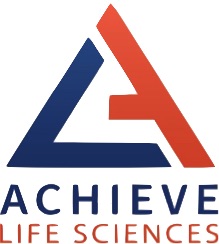EX-99.1
Published on November 18, 2022

Exhibit 99.1
Achieve Life Sciences Announces Private Placement of $18.9 Million
SEATTLE, Wash. and VANCOUVER, British Columbia, November 15, 2022 -- Achieve Life Sciences, Inc. (NASDAQ: ACHV), a late-stage clinical pharmaceutical company committed to the global development and commercialization of cytisinicline for smoking cessation and nicotine dependence, today announced that it has entered into definitive agreements for a private placement of its securities for gross proceeds of approximately $18.9 million, prior to deducting placement agent commissions and estimated offering expenses.
The private placement will be for up to 4,093,141 units at a price of $4.625 per unit, with each unit consisting of two shares of common stock and one warrant to purchase one share of common stock. The private placement was priced at $2.3125 per common share, an 8.6% premium to the closing price of the Company’s common stock the day prior to entering into the subscription agreements, including a one-half warrant per share. The private placement is expected to close on or about November 18, 2022, subject to customary closing conditions. The warrants will have an initial per share exercise price of $4.50. All warrants will be exercisable beginning on the six-month anniversary of the closing of the offering and will have a seven-year term. The Company intends to use the proceeds from the private placement to fund clinical research and development, and for general working capital. It estimates that the net proceeds, plus its existing financial resources, are sufficient to fund operations into late 2023.
The private placement includes a new life sciences focused investment fund, participation from Achieve management, as well as new and existing investors. Lake Street Capital Markets, LLC is acting as the exclusive placement agent in connection with this offering.
The securities being issued and sold in the private placement have not been registered under the Securities Act of 1933, as amended (the “Securities Act”), or any state’s securities laws, and are being issued and sold in reliance on Section 4(a)(2) of the Securities Act and Regulation D promulgated thereunder. The securities may not be offered or sold in the United States, except pursuant to an effective registration statement or an applicable exemption from the registration requirements of the Securities Act. Achieve has agreed to file a registration statement to register the resale of the shares of common stock included in the units and underlying the warrants within 60 days of the closing of the offering. This press release shall not constitute an offer to sell or the solicitation of an offer to buy any securities described herein, nor shall there be any sale of these securities in any state or jurisdiction in which such offer, solicitation or sale would be unlawful prior to the registration or qualification under the securities laws of any such state or jurisdiction.


About Achieve and Cytisinicline
Achieve’s focus is to address the global smoking health and nicotine addiction epidemic through the development and commercialization of cytisinicline. Tobacco use is currently the leading cause of preventable death that is responsible for more than eight million deaths worldwide and nearly half a million deaths in the United States annually.1,2 More than 87% of lung cancer deaths, 61% of all pulmonary disease deaths, and 32% of all deaths from coronary heart disease are attributable to smoking and exposure to secondhand smoke.2
In addition, there are nearly 11 million adults in the United States who use e-cigarettes, also known as vaping.3 While nicotine e-cigarettes are thought to be less harmful than combustible cigarettes, they remain addictive and can deliver harmful chemicals which can cause lung injury or cardiovascular disease.4 In 2021, e-cigarettes were the most commonly used tobacco product reported by 1.72 million high school students.5 Research shows adolescents who have used e-cigarettes are seven times more likely to become smokers one year later compared to those who have never vaped.6 Currently, there are no FDA-approved treatments indicated specifically as an aid to nicotine e-cigarette cessation.
Cytisinicline is a plant-based alkaloid with a high binding affinity to the nicotinic acetylcholine receptor. It is believed to aid in treating nicotine addiction for smoking and e-cigarette cessation by interacting with nicotine receptors in the brain, reducing the severity of withdrawal symptoms, and reducing the reward and satisfaction associated with nicotine products. Cytisinicline is an investigational product candidate being developed for treatment of nicotine addiction and has not been approved by the Food and Drug Administration for any indication in the United States. For more information on cytisinicline and Achieve visit www.achievelifesciences.com.
Forward Looking Statements
This press release contains forward-looking statements within the meaning of the “safe harbor” provisions of the Private Securities Litigation Reform Act of 1995, including, but not limited to, statements regarding the closing of the private placement, registration of the shares of common stock being issued and sold in the private placement, including those shares underlying the warrants, Achieve’s use of the proceeds from the private placement, expectations regarding Achieve’s cash forecasts, the timing and nature of cytisinicline clinical development, data results and commercialization activities, the potential market size for cytisinicline, the potential benefits, safety and tolerability of cytisinicline, the ability to discover and develop new uses for cytisinicline, including but not limited to as an e-cigarette

cessation product, and the development and effectiveness of new treatments. All statements other than statements of historical fact are statements that could be deemed forward-looking statements. Achieve may not actually achieve its plans or product development goals in a timely manner, if at all, or otherwise carry out its intentions or meet its expectations or projections disclosed in these forward-looking statements. These statements are based on management’s current expectations and beliefs and are subject to a number of risks, uncertainties and assumptions that could cause actual results to differ materially from those described in the forward-looking statements, including, among others, the risk that cytisinicline may not demonstrate the hypothesized or expected benefits; the risk that Achieve may not be able to obtain additional financing to fund the development of cytisinicline; the risk that cytisinicline will not receive regulatory approval or be successfully commercialized; the risk that new developments in the smoking cessation landscape require changes in business strategy or clinical development plans; the risk that Achieve’s intellectual property may not be adequately protected; general business and economic conditions; risks related to the impact on our business of the COVID-19 pandemic or similar public health crises and the other factors described in the risk factors set forth in Achieve’s filings with the Securities and Exchange Commission from time to time, including Achieve’s Annual Reports on Form 10-K and Quarterly Reports on Form 10-Q. Achieve undertakes no obligation to update the forward-looking statements contained herein or to reflect events or circumstances occurring after the date hereof, other than as may be required by applicable.
Investor Relations Contact
Rich Cockrell
achv@cg.capital
(404) 736-3838
Media Contact
Glenn Silver
Glenn.Silver@Finnpartners.com
(646) 871-8485
References
1World Health Organization. WHO Report on the Global Tobacco Epidemic, 2019. Geneva: World Health Organization, 2017.
2U.S. Department of Health and Human Services. The Health Consequences of Smoking – 50 Years of Progress. A Report of the Surgeon General, 2014.
3Cornelius ME, Wang TW, Jamal A, Loretan CG, Neff LJ. Tobacco Product Use Among Adults — United States, 2019. MMWR Morb Mortal Wkly Rep 2020;69:1736–1742. DOI: 10.15585/mmwr.mm6946a4
4Ogunwale, Mumiye A et al. (2017) Aldehyde Detection in Electronic Cigarette Aerosols. ACS omega 2(3): 1207-1214. DOI: 10.1021/acsomega.6b00489].
5Gentzke AS, Wang TW, Cornelius M, et al. Tobacco Product Use and Associated Factors Among Middle and High School Students – National Youth Tobacco Survey, United States, 2021. MMWR Surveill Summ 2022;71(no. SS-5):1-29. DOI: 10.15585/mmwr.ss7105a1.

6Elizabeth C. Hair, Alexis A. Barton, Siobhan N. Perks, Jennifer Kreslake, Haijun Xiao, Lindsay Pitzer, Adam M. Leventhal, Donna M. Vallone, Association between e-cigarette use and future combustible cigarette use: Evidence from a prospective cohort of youth and young adults, 2017–2019, Addictive Behaviors, Volume 112, 2021, 106593, ISSN 0306-4603. DOI: 10.1016/j.addbeh.2020.106593.